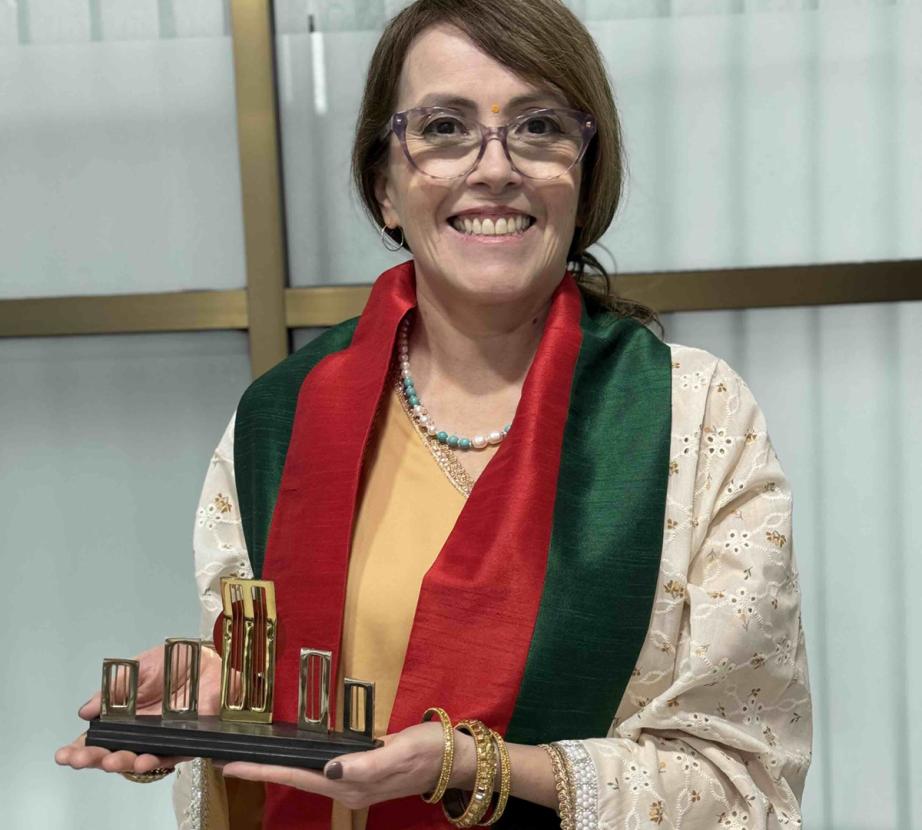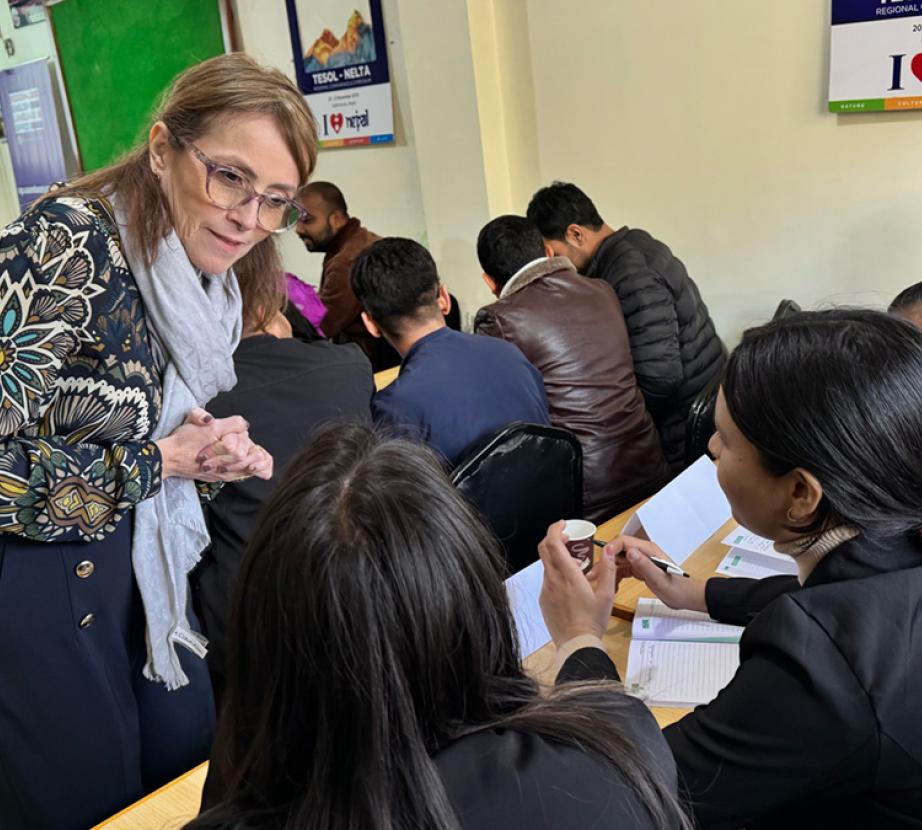Monday, Mar 11, 2024
Dr. Maria Villalobos-Buehner recently returned from Bangladesh and Nepal
by Adam Grybowski

In February, Dr. Maria Villalobos-Buehner appeared as a keynote speaker and workshop presenter at two of the largest international conferences in Asia. The experience was part of a nearly three-week international excursion following her selection by the U.S. Department of State as an English Language Specialist. The program is the premier opportunity for leaders in the field of Teaching English to Speakers of Other Languages (TESOL) to enact change in the way that English is taught abroad.
“It was intense work, but to go into communities I knew little about and make a difference was worth every second of it,” Villalobos-Buehner says. “It really helped me as an educator to have these new experiences to learn from, but what gave me the most satisfaction was how useful my keynote addresses and workshops were to them.”
Villalobos-Buehner, a professor in Rider University’s Department of Languages, Literatures and Culture, was heavily involved at the gathering for the Nepal English Language Teachers' Association (NELTA) in Nepal and the TESOL conference in Bangladesh. In addition to her keynote addresses, she participated in pre-conference events and community gatherings, and other workshops took place at several universities in each country.
Villalobos-Buehner chose to focus on a separate topic for each country. In Bangladesh, she explored how artificial intelligence could be used as a tool to support English language learning. In Nepal, she addressed how multilingualism could be used to support efforts to increase diversity, equity and inclusion.
English Language Specialists work directly with local teacher trainers, educational leaders and ministry of education officials to exchange knowledge and establish partnerships that benefit participants, institutions, and communities in the United States and overseas. Villalobos-Buehner’s English Language Specialist project was one of about 240 the State Department supports each year in more than 80 countries.
“This was one of the most intense times of my life,” she says. “You are working nonstop to educate language teachers in all different aspects of the English language.”
Villalobos-Buehner was an ideal candidate for this project, the State Department says, because of her extensive expertise in teacher training, and language teaching and learning. She has also researched the use of technology in language learning and participated in initiatives in diversity, equity and inclusion.
While the main component of the English Language Specialist Program is to promote English language learning, the program often provides professional development opportunities that allow participants to build new skills. For Villalobos-Buehner, her experience has deepened her curiosity about the potential for artificial intelligence to enhance student proficiency while maintaining the human aspect of English instruction.
“My trip sparked an interest for me to continue keeping up with that technology,” she says. “There are many opportunities I can explore in that area.”
It also allowed her to experience different cultures, where — in an unusual situation for this speaker of English, French and Spanish. — she was unfamiliar with the local languages.
“Since the trip came together so fast, I couldn’t study the languages of where I was traveling,” she says. “But still, I felt accepted from the very beginning. I thought, ‘This is how inclusion feels.’ It was a beautiful, energizing and powerful experience.”


